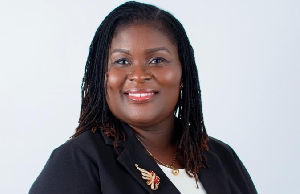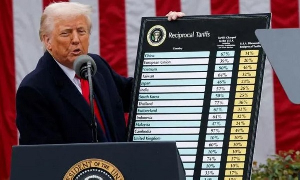The man was sleeping late. He’d only come home in the early hours of the morning.
But at exactly half-past seven, he heard a knock on his bedroom door.
“Daddy, it’s me. Daddy it’s the fees!”
Gee-whiz! It was fee-paying time again? It seemed like only yesterday that he’d settled the fees? Yet there the boy was, once again asking for fees.
The man got up. He did his best not to let the kid know that he was annoyed. For was it not he himself who had moved heaven and earth to get the boy into that very good school?
The man got up, searched through his trouser–pockets and counted out the notes. There was just enough to pay the fees.
But paying them meant that the man would have to buy less petrol; beer (!!) and yes; … yes….; yes: all those other things he’d planned to do with his money.
For the man remembered the times his own father had had to cough up his school fees.
“You think money is like water, don’t you?” the old man would sneer. “This school at all that you’re attending, when you finish, what will you do? Will you not just dress up and move to another town, hardly ever coming here to see us? And I am supposed to pay for that calamity?”
But having given vent to his feelings, the old man would go and bring the money. Two shillings; or four shillings; or six shilling – depending on how much he had paid previously. And the boy would walk to school with his head held high. He would not suffer the indignity of being excluded from classes after all.
And now, it was the man’s turn. Only that these fees were pretty hefty! So steep that he’d once done the unthinkable and applied for a scholarship. A Cocoa Marketing Board scholarship.
He’d been asked to bring proof that his family grew cocoa. Of course, his family grew cocoa. He’d grown cocoa himself from age eight to about age 14.
The fellows at the bursary of his boy’s school said they wanted proof.
So he went to his village and got a draughtsman to draw a full map of his family’s cocoa farms.
He took it to the school.
But he never heard from the school about his application.
Later on, some ‘wise guy bi’ informed him that the chaps at the school bursary had a scam going. They did a roaring business by attaching the maps people brought, to the “wrong” applications. An application from someone who had a genuine cocoa farm, would be declared unsuccessful (because it was allegedly not supported by documentary evidence!) whereas an application from someone who had never seen a cocoa tree in his life, but who had “greased the hands” of the appropriate person in the bursary, would be granted. Supported by the documentation brought by an ‘unsuccessful’ applicant!
“Are you sure about this?” the man had asked his informer.
“You can refuse to believe it!” the informer said. “But just let me ask you: how can you prove that you actually brought a draughtsman’s map of the farm? Were you given a receipt for it? Even if you were given a receipt, suppose you were told that there were other kids whose applications for scholarships were stronger than yours? It’s a matter of discretion, isn’t it?”
The man swallowed. He decided to forget all about the scholarship and cut down, instead, on expenditure on “fripperies”. He somehow managed to pay the boy’s fees.
Today, that boy earns a very decent living. Because he got a good education. But suppose the man had not paid up?
That’s why those who are quibbling about the introduction of free SHS education in Ghana must be regarded as being out of their minds.
So, every good policy may be difficult to implement. But can’t obstacles be overcome through a proper analysis of the situation on the ground and imaginative solutions found for them? Because implementation presents difficulties, the advantages the policy seeks to bring to our children must be eschewed?
Of course we all know that the Ministry of Education is particularly weak at implementing policy. Remember how it starved schools of common chalk so that a head-teacher was reduced to begging the visiting wife of then then Vice-President to take up the matter of providing chalk to schools?
Yes, the Ministry of Education faces “challenges”. But its political heads can put in their oar and scrutinise how the SHS scheme is being implemented. They must plug all the holes so as to make the policy an exemplarily successful one.
If the scheme succeeds, the Akufo-Addo Government will have “chalked” up an amazing feat in the annals of education in this country. So, course, some people would like the policy to fail. They can do this by demoralising the students, their parents and their teachers, with propaganda that exaggerates the difficulties facing the scheme.
However, if the bosses at the Ministry are able expertly to detect the teeming problems the scheme has brought and remove them before they build up to intolerable levels, they can wipe the complacent smiles off the faces of those who have benefited from higher education but don’t want others to do the same. Those who wish to kick away the ladder so that others might not be able to climb to the heights that would provide them with a better standard of living in future.
Yes – the selfish “anti-SHS campaigners” must be disgraced with action; by implementing the SHS policy as efficiently as possible.
Opinions of Saturday, 16 September 2017
Columnist: Cameron Duodu















